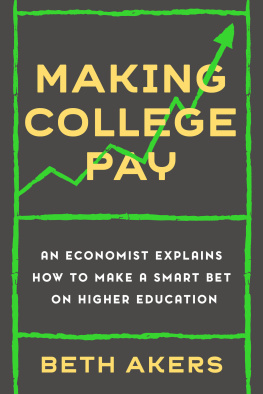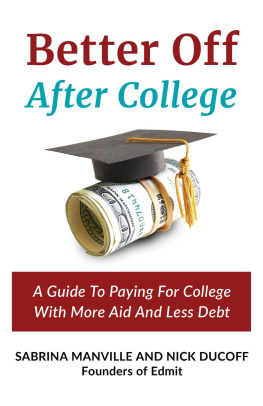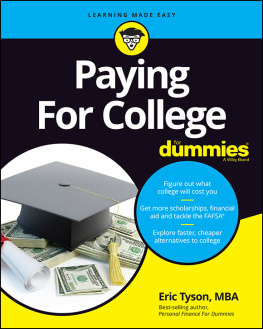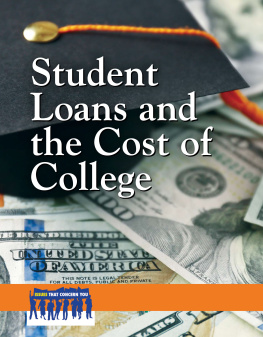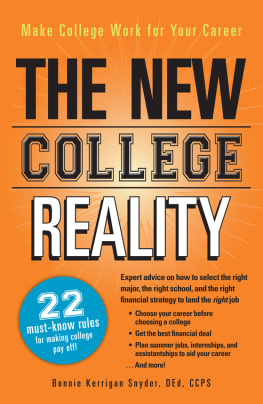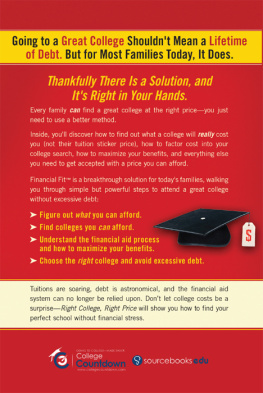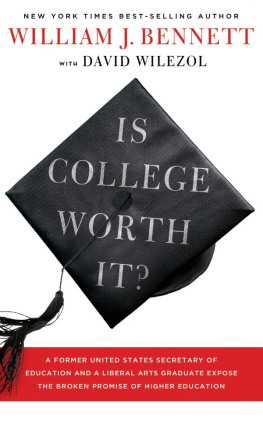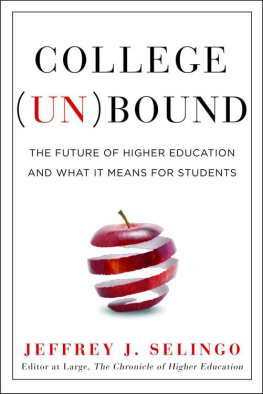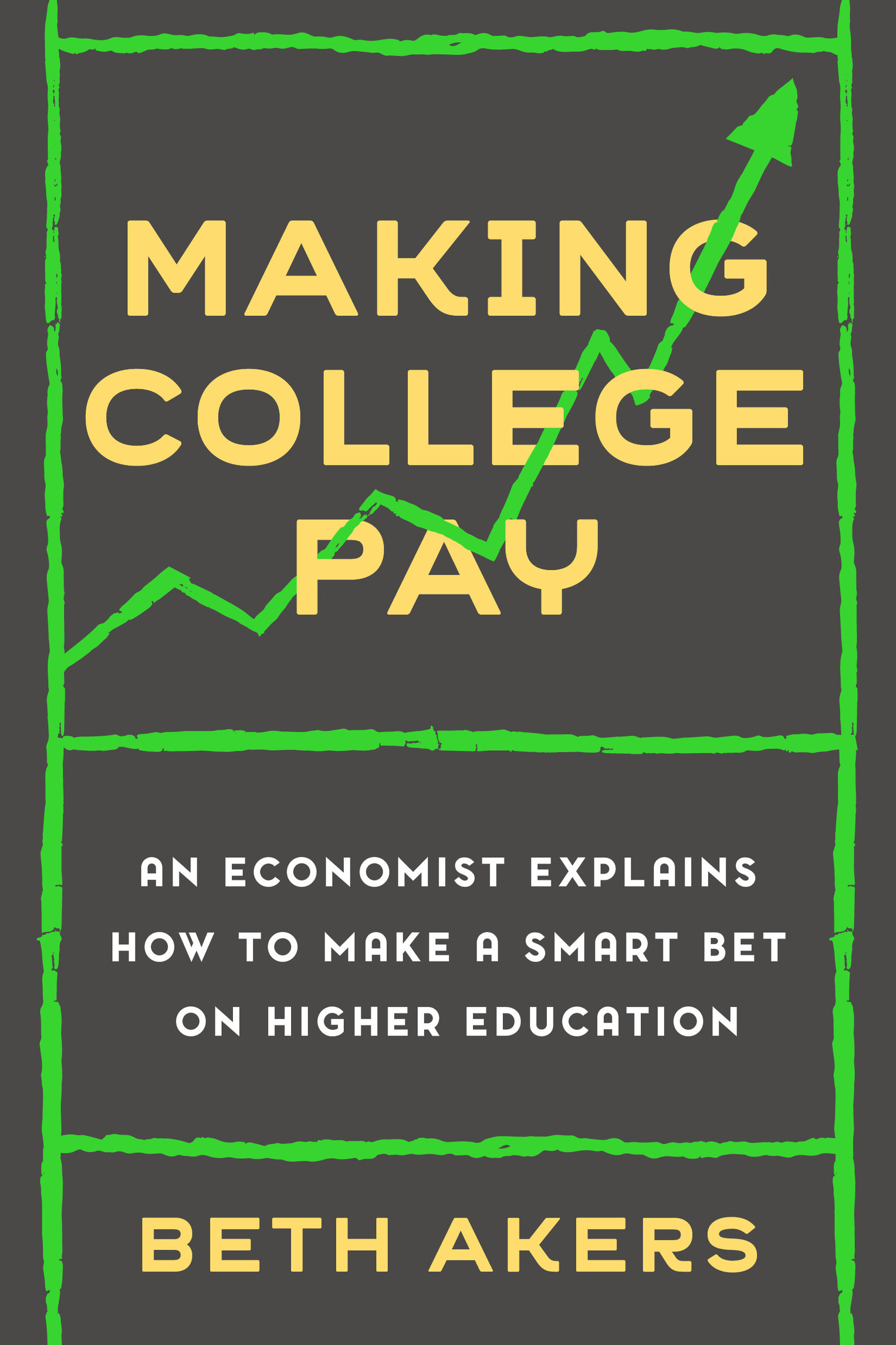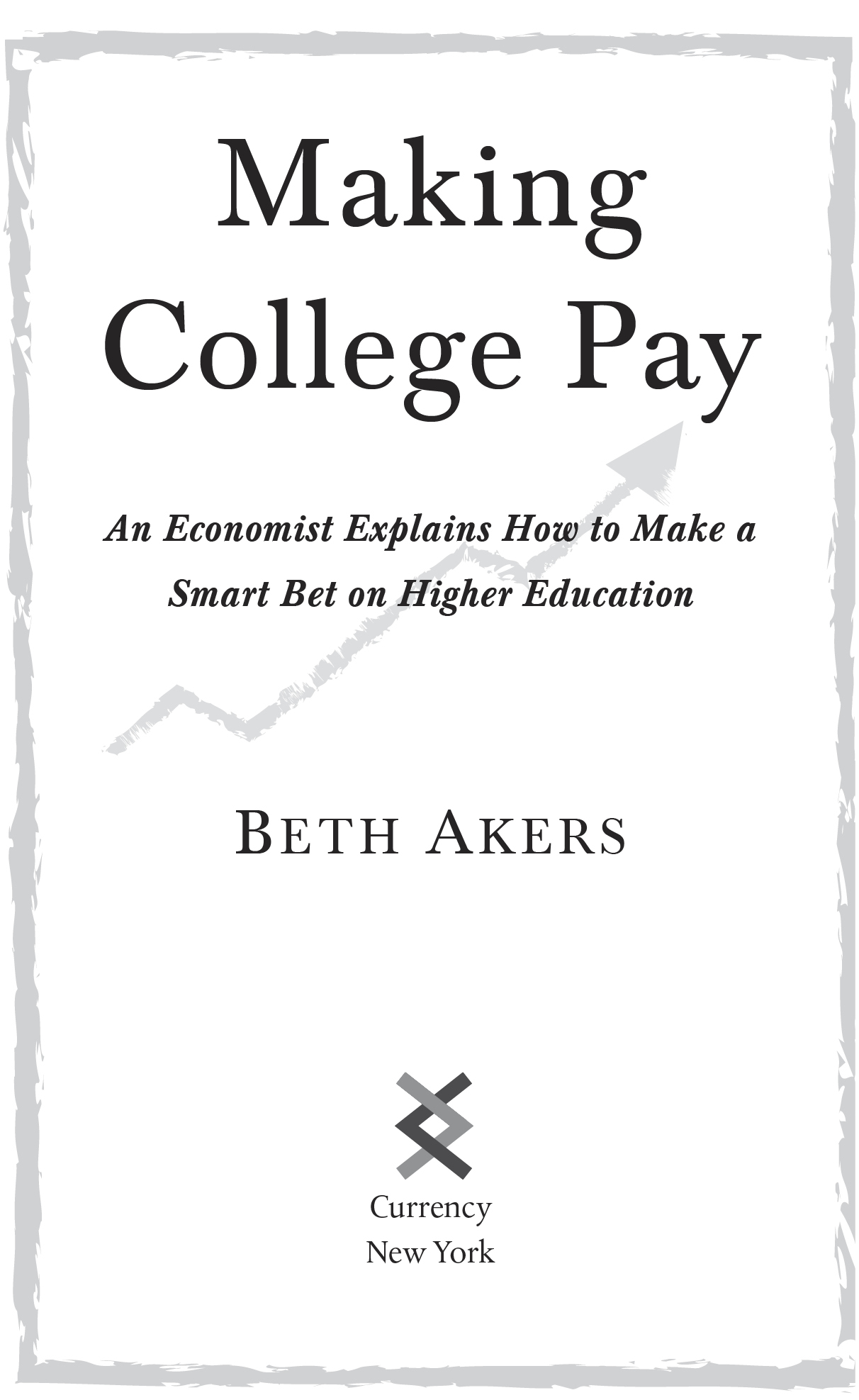Beth Akers - Making College Pay: An Economist Explains How to Make a Smart Bet on Higher Education
Here you can read online Beth Akers - Making College Pay: An Economist Explains How to Make a Smart Bet on Higher Education full text of the book (entire story) in english for free. Download pdf and epub, get meaning, cover and reviews about this ebook. year: 2021, publisher: Crown, genre: Politics. Description of the work, (preface) as well as reviews are available. Best literature library LitArk.com created for fans of good reading and offers a wide selection of genres:
Romance novel
Science fiction
Adventure
Detective
Science
History
Home and family
Prose
Art
Politics
Computer
Non-fiction
Religion
Business
Children
Humor
Choose a favorite category and find really read worthwhile books. Enjoy immersion in the world of imagination, feel the emotions of the characters or learn something new for yourself, make an fascinating discovery.
- Book:Making College Pay: An Economist Explains How to Make a Smart Bet on Higher Education
- Author:
- Publisher:Crown
- Genre:
- Year:2021
- Rating:5 / 5
- Favourites:Add to favourites
- Your mark:
Making College Pay: An Economist Explains How to Make a Smart Bet on Higher Education: summary, description and annotation
We offer to read an annotation, description, summary or preface (depends on what the author of the book "Making College Pay: An Economist Explains How to Make a Smart Bet on Higher Education" wrote himself). If you haven't found the necessary information about the book — write in the comments, we will try to find it.
Full of easy-to-understand advice grounded in deep expertise and research.Martin West, William Henry Bloomberg Professor of Education, Harvard University
The cost of college makes for frightening headlines. The outstanding balance of student loans is more than $1.5 trillion nationally, while tuitions continue to rise. And on the heels of a pandemic that nearly dismantled the traditional college experience, we have to wonder: Is college really worth it?
From a financial perspective, says economist Beth Akers, the answer is yes. Its true that college is expensive, but once we see higher education for what it isan investment in future opportunities, job security, and earningsa different picture emerges: The average college graduate earns an additionalmillion dollars over their career (compared to those who stopped their education after high school), and on average, two- and four-year schools deliver a 15 percent return on investmentdouble that of the stock market.
Yet these outcomes are not guaranteed. Rather, they hinge upon where and how you opt to invest your tuition dollars. Simply put, the real problem with college isnt the costits the risk that your investment might not pay off.
In Making College Pay, Akers shows how to improve your odds by making smart choices about where to enroll, what to study, and how to pay for it. Youll learn
why choosing the right major can matter more than where you enroll
the best criteria for picking a school (hint: not price, selectivity or ranking)
why working part-time while enrolled might set you back financially
why its often best to borrow, even if you dont have to
the pros and cons of innovative alternatives to traditional college
how to take advantage of new, low-risk financing tools
Full of practical advice for students and parents, Making College Pay reminds us that higher education remains an engine for opportunity, upward mobility, and prosperity.
Beth Akers: author's other books
Who wrote Making College Pay: An Economist Explains How to Make a Smart Bet on Higher Education? Find out the surname, the name of the author of the book and a list of all author's works by series.

